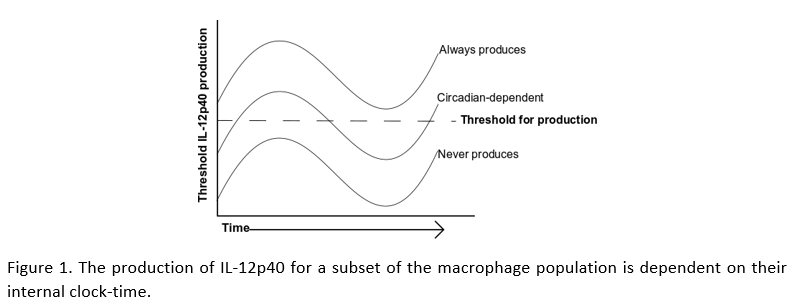Author : Shannon Cox. Curtis Clock Lab, Royal College of Surgeons in Ireland.
Highlighted Article : Choline uptake and metabolism modulate macrophage IL-1β and IL-18 production
Elsa Sanchez-Lopez, Zhenyu Zhong, Alexandra Stubelius, Shannon R. Sweeney, Laela M. Booshehri, Laura Antonucci, Ru Liu-Bryan, Alessia Lodi, Robert Terkeltaub, Juan Carlos Lacal, Anne N. Murphy, Hal M. Hoffman, Stefano Tiziani, Monica Guma, and Michael Karin
DOI: 10.1016/j.cmet.2019.03.011
Cell Metab. 2019 Apr 8. pii: S1550-4131(19)30139-1
Choline is an essential nutrient required for the structural integrity of cells in our body, including immune cells like macrophages. In cancer and inflammatory diseases, uptake of choline by cells is used as an indicator of enhanced cell proliferation. Macrophages take up choline at sites of inflammation, however the effect of enhanced choline uptake on macrophage driven inflammation is unknown. In this study, the authors investigated how inhibition of choline uptake affected the inflammatory responses from macrophages.
Macrophages upon encountering a pathogen or damage produce pro-inflammatory proteins such as IL-1β and IL-18. The authors mimicked this response by exposing macrophages to bacterial lipopolysaccharide (LPS), a component of gram negative bacteria. LPS sensing by macrophages leads to the activation of a number of protein complexes required for the production of IL-1β and IL-18. Sanchez-Lopez et al. revealed that LPS treatment led to choline uptake via its transporter CTL1, while a lack of choline or CTL1 led to a decrease in IL-1β through inhibition of the NLRP3 inflammasome, a protein complex required for IL-1β production. The authors also found that choline deficiency in macrophages led to low energy in cells, and this low energy state suppressed IL-1β production and therefore reduced inflammation.
In mice, blocking choline using an inhibitor reduced IL-1β and thus inflammation, providing protection from lethal septic shock. A family of genetic conditions known as cryopyrin-associated periodic syndromes (CAPS) are associated with constant IL-1β production. Blocking choline also reduced IL-1β in mouse models of these conditions.
In addition to CAPs, dysregulated inflammation is the basis of a number of chronic conditions including diabetes, Alzheimer’s disease, and arthritis and also the life threatening condition sepsis . Understanding the control pathways of inflammation in key inflammatory immune cells like macrophages opens up new pathways for therapeutic manipulation. Therefore choline inhibitors may be useful in treating a number of inflammatory type conditions.
Figure 1: Inhibition of choline uptake leads to reduction in macrophage inflammatory responses. Source: https://www.sciencedirect.com/science/article/pii/S1550413119301391?via%3Dihub

